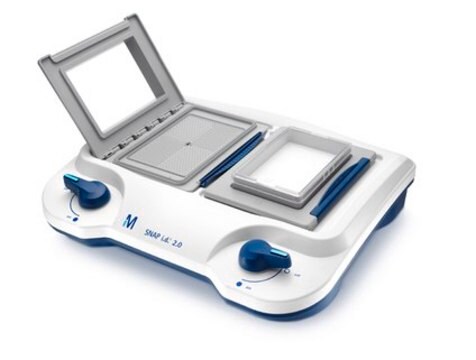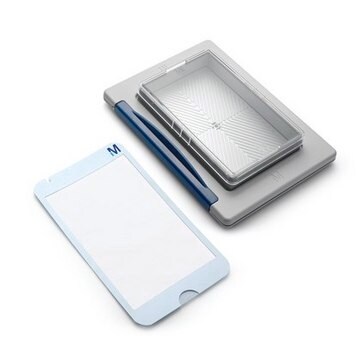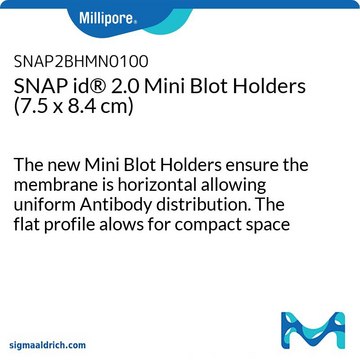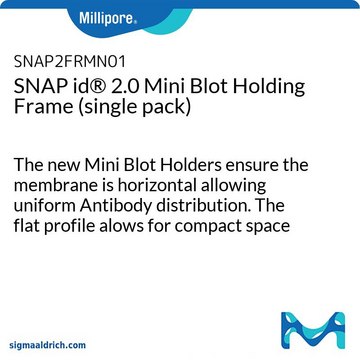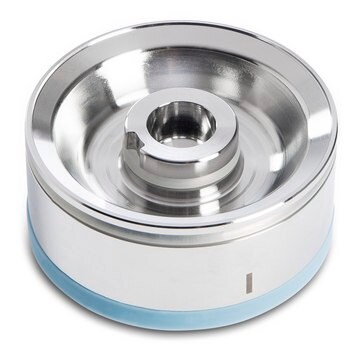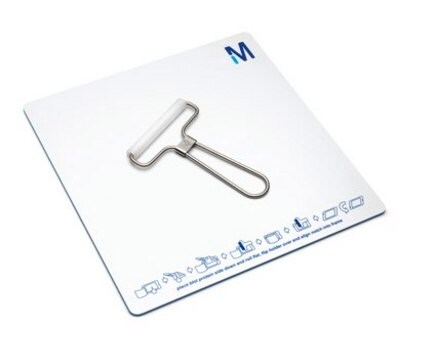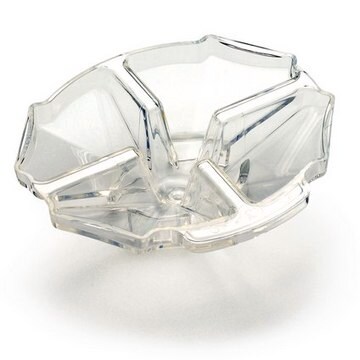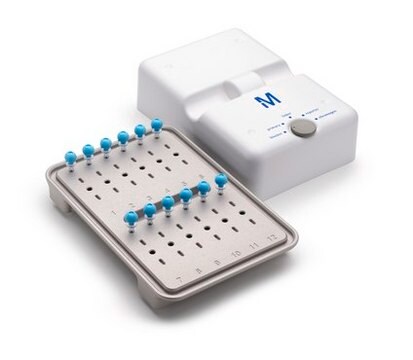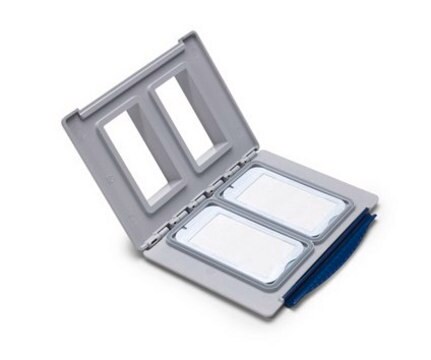SNAP2MINI
SNAP id® 2.0 Protein Detection System-Mini
7.5 x 8.4 cm, Unique vacuum-driven technology & a built-in flow distributor actively drive reagents through the membrane
Sinónimos:
Protein detection kit
About This Item
Productos recomendados
Nombre del producto
SNAP id® 2.0 Protein Detection System-Mini (7.5 x 8.4 cm), Developed to meet the needs of our Western blotting customers, the SNAP i.d. 2.0 system produces blots of a very high quality. Unique vacuum-driven technology & a built-in flow distributor actively drive reagents through the membrane..
fabricante / nombre comercial
SNAP id®
técnicas
western blot: suitable
compatibilidad
for use with Commercially available blocking reagents
for use with Luminata Western HRP Substrates
for use with Nitrocellulose
for use with PVDF (Immobilon membranes)
for use with blØk<TMSYMBOL></TMSYMBOL>-CH Buffer (cat. no. WBAVDCH01)
for use with blØk<TMSYMBOL></TMSYMBOL>-FL Buffer (cat. no. WBAVDFL01)
for use with blØk<TMSYMBOL></TMSYMBOL>-PO Buffer (cat. no. WBAVDP001)
for use with commercially available detection reagents
método de detección
chemiluminescent
colorimetric
fluorometric
Condiciones de envío
ambient
temp. de almacenamiento
room temp
Descripción general
Aplicación
Características y beneficios
- Processing of up to four blots at a time on a vacuum base with two individually controlled sides
- Comprises of three removable blot holding frame sizes: MultiBlot, Mini, and Midi, to accommodate different blot sizes
- Disposable blot holders, sized for MultiBlot, Mini, and Midi frames
- Blot spacer required with first-generation SNAP id system is now integrated into the new blot holder
- Extended and off-line blot processing options: frames have lids and can be removed from the base for extended incubation (one hour to overnight), incubation in a shaker, or incubation at 4 °C
- Stackable frames so multiple blots can be processed at the same time;30-minute immunodetection with uniform signal across the blot
- Greater than 80% antibody recovery using the SNAP id 2.0 Antibody Collection Trays
- Compatible with nitrocellulose and polyvinylidene fluoride (PVDF) membranes
- Works with the most blocking buffers and visualization methodologies (e.g. chemiluminescence, fluorescence, or colorimetric)
Envase
Ligadura / enlace
Otras notas
Información legal
Certificados de análisis (COA)
Busque Certificados de análisis (COA) introduciendo el número de lote del producto. Los números de lote se encuentran en la etiqueta del producto después de las palabras «Lot» o «Batch»
¿Ya tiene este producto?
Encuentre la documentación para los productos que ha comprado recientemente en la Biblioteca de documentos.
Los clientes también vieron
Nuestro equipo de científicos tiene experiencia en todas las áreas de investigación: Ciencias de la vida, Ciencia de los materiales, Síntesis química, Cromatografía, Analítica y muchas otras.
Póngase en contacto con el Servicio técnico